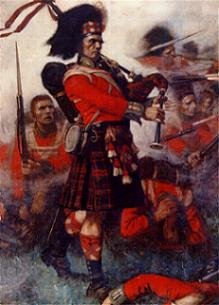Sir Nicholas Appleyard - The Battle of Flodden
Nicholas was born
in 1473, son of Sir John Appleyard and Margaret Bracken who had married in
1466, residing in Bracken Hall, not far out of Norwich In Norfolk. As the son a man of title and coming from a
line of titles, Nicholas would have lived comfortably in comparison to many of
the time.
Members of their family had held various
offices including Mayor of Norwich and had represented Norwich in Parliament
and they were associated with various Kings of England including Richard II and
Henry IV.
England and Scotland’s history of
fighting each other over borders and religion date back over 1,000 years with one
of the earliest known battles dating back to 937ad with the Battle of
Brunanburh. With Appleyard’s in the
royal courts from the 1100’s, it can be assumed that they, along with their tenants,
would have played a role in many of those battles.
In September 1513, England and
Scotland would come together in the biggest battle of their history, the Battle
of Flodden.
Scotland and France were allies and,
when Henry VIII declared war on France and sent soldiers to invade the country,
James IV declared war on England, invading England and diverting Henry’s
attention across his two enemies. Making
Christmas dinners even more awkward, James IV was married to Henry VIII’s
sister Margaret.
Catherine of Aragon was acting as
Regent of England at the time with Henry in France. Issuing warrants for the property of all Scotsmen
in England to be seized in response to James’ declaration of his intent to
invade, Catherine soon ordered an army to be raised.
It is during this time that Nicholas
would have been ordered to gather his tenants and join the army under the Earl
of Surrey, meeting James IV and his army near Branxton in Northumberland.
Unlike today’s battles, there would be
no surprise attacks. In fact, James IV
had written to Henry VI a month prior letting him know of his intent to invade,
as was expected as part of the chivalry of war.
He had used this time to collect some
cannons from Edinburgh and take over castles as he travelled to Northumberland
in Northern England. At the same time,
the Earl built his armies and travelled north.
The battle, over a month in planning
began on September 9, 1513, between 12noon and 3pm as agreed. The English army had around 26,000 men while
the Scots had 30,000 to 40,000. Tactically, the Scots positioned themselves in
a single group format apparently expecting to attack the English head on
however, the English had formed a plan of attack, which would see them launch
against the Scots on all sides and give them the ability to regroup when the
Scots did launch.
In addition, the armoury of the English
was more suitable to the ground battles fought and with the Scots using equipment
they hadn’t fought with before and on unfamiliar boggy ground, the English had
the upper hand.
By the end of the battle, over 10,000
Scots would be dead including many of the Clan Chieftains and the Scottish King,
James IV. Such was the devastation on
the country that James would be the last of the Royal leaders to ever fight in
a battle.
Up to 2,000 Englishmen would also die
including Nicholas Appleyard, the father of six and husband of Agnes.
Following the battle, Nicholas would
be one of 45 soldiers knighted for their valour on the field. His tenancies at Bracken Ash would be passed
down to nephews and his daughter Alice would go on to forge her own place in
English history with her husband Robert leading the Kett rebellion.
Image: The standards and Arms for Master Nicholas
Appleyard (knighted at the Battle of Flodden on September 9, 1513) The standard bears the Cross of St George
next to the hoist, with the fly bearing Crests and Badges.
Image
courtesty of www.college-of-arms.gov.uk
Sir Nicholas
Appleyard
Born: 1473,
Bracken Ash Norfolk, England
Died: Sept 9, 1513, Battle of Flodden, Branxton,
Northumberland, England
Link to
Peter Appleyard: Great Uncle, 11 x removed

.jpg)


Comments
Post a Comment